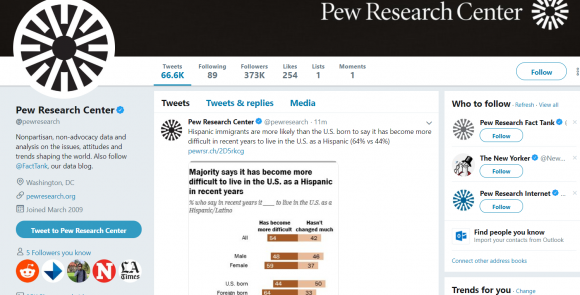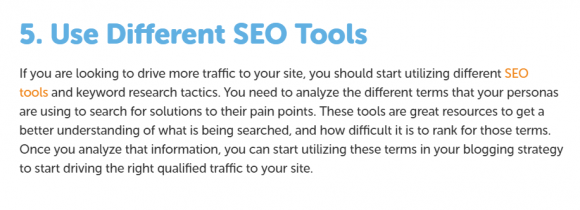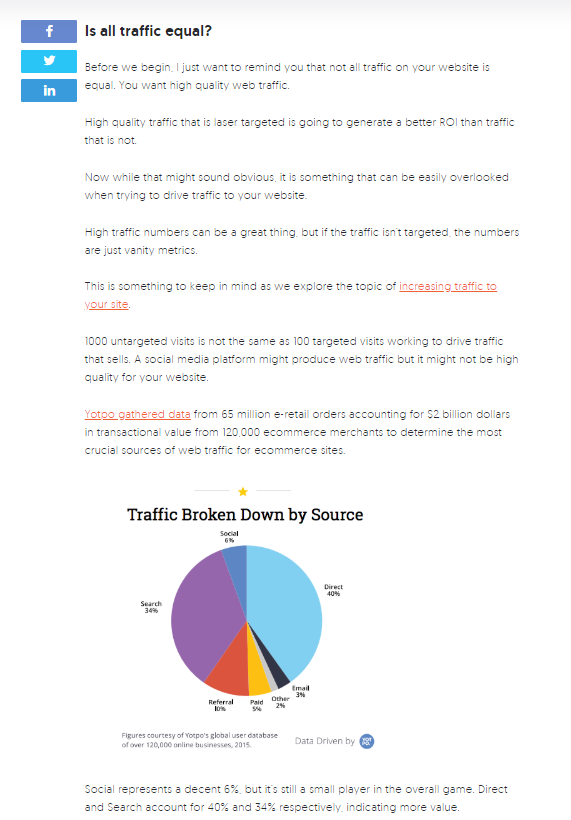3 Critical Blogging Tips to Improve E-A-T Score

E-A-T score is nothing new.
In the eyes of the all-powerful search engines, this concept first came to light in 2014 when Google’s Search Quality Guidelines leaked. As Google addressed this, we got a better idea of what the acronym was all about and how important it is in determining search engine rankings.
[bctt tweet=”What is E-A-T score? #SEO #Google #blogging” username=”blogherald”]E – Expertise. In order for your content to rank well, it needs to be clear that you are an expert in whatever topic you are writing about. Now, the details of what define the word “expert” is what Google is working to iron out. For instance, if you are writing something related to medical, financial, or legal topics, expertise is going to hold a lot of importance, as opposed to topics around gossip or humor.
A – Authoritativeness. This, in many ways, stems from expertise. Authoritativeness refers to your credentials, experiences, recommendations, and demonstrated wisdom in your field. The more you are able to prove and manage your expertise, the more authority you will have. In SEO terms, much of this process involves building relevant, high-quality links from other bona fide experts.
T – Trustworthiness. Since day one, Google’s primary mission has been to provide users with the most relevant and beneficial information. Generally speaking, the current state of the internet is not exactly the most trusting environment in the world. With the rise of “fake news” and cybercrime, the importance of building trust has never been greater for bloggers and businesses. In regards to E-A-T score, Trustworthiness involves a number of factors from the quality of the content to social proofing to the overall design and security of the platform.
The Google algorithm update on August 1st 2018 has shaken the online business world to its core. While most of the details are still unclear (and Google is famously quiet about what exactly goes into their ranking criteria), all we can do is experiment and see what works.
Google has stated that E-A-T score is among the top considerations that determine Page Quality. So when it comes to blogging and SEO, what can you do to ensure your content (or the content of the company you write for) ranks well?
Let’s discuss.
Push Personal Branding to Gain Expertise
[bctt tweet=”If there is one major takeaway from the E-A-T score guidelines update, it’s that personal branding matters, a lot.” username=”blogherald”]If there is one major takeaway from the E-A-T score guidelines update, it’s that personal branding matters, a lot. The insight coming from qualified individuals holds more weight than what comes from businesses themselves.
As a blogger, you are probably writing a lot of thought leadership content within a certain niche. Or, you are working with a number of organizations across a variety of niches. Encouraging leaders within companies (your clients) to invest in personal branding is a key ingredient to improving E-A-T score (and can help you land more writing projects).
Perhaps the biggest thing that Google is aiming to crack down on with this update is unqualified figures writing thought leadership content on industry-specific topics. To give you an idea, YMYL (Your Money Your Life) industries got hit the hardest by this update. For instance, if you write an article about the keto diet, but have little to no expertise in the medical field, the post isn’t going to receive a good E-A-T score – as this content can potentially be dangerous for the reader.
So, the importance of strong personal branding in your field is going to be crucial in how your content ranks on the SERPs. So, whether you are writing to improve your own personal brand or the personal brand of others, you need to make it a point to get your content published on high-authority blogging sites within the given niche.
As a writer, your skills will certainly be put to the test. Google has added the idea of content having “beneficial purpose” to the Quality Rater Guidelines. That said, if you develop a reputation for spreading misinformation or producing content that lacks beneficial purpose, your chances of ranking well will be very limited.
From a business standpoint, if people within a company have a good reputation for producing top-notch informational content, the overall brand will benefit. So as a blogger writing for clients, you need to go the extra mile in immersing yourself within the industry and writing each blog post with a beneficial purpose in mind. Regardless of who you are writing for, there are a handful of questions to ask yourself with every piece you write:
-
- What does the reader gain from this article?
- Are your claims backed up with reputable sources?
- Does your insight discuss the how, rather than just the what and why?
- What does this piece add to the industry pool of shared knowledge?
Regardless of who you are writing for, establishing expertise with a personal brand is all about contributing fresh and reliable information, rather than just adding to the noise.
Manage Your Reputation Wisely to Build Authority
As you produce top-tier content, it needs to be overtly clear who wrote it and why they are qualified to write it. Whether you are blogging for yourself or for someone else, you need to have a strong author bio that includes:
- The author’s name and job title.
- A short summary that explains the author’s expertise.
- A link to the author’s website or to a full bio on a company website.
Now, when you are crafting this bio, you need to take into account the type of content that is being produced. If you are writing high-level YMYL content, the bio should reflect that the author has good experience and proven results in the field. For example, when writing about the ins and outs of protein diets, your bio (or the bio of your client) needs to properly reflect the topic. Write about the longevity of the respective career in the health world and mention any noteworthy publications the author has written for.
In regards to the content itself, one big area you need to focus on in blogging is citing quality research. Google likes to see that you are using high-quality links within your posts, so be careful in choosing what you cite. The research you use in your content shows that you care about delivering the most accurate and relevant information. Generally speaking, depending on the topic, it’s best to only use stats that are no older than two years. For example, if you are writing a blog post about web design, you would definitely need to use the freshest figures you can find – as the standards and best practices change all the time. Lastly, be sure you use appropriate anchor text to help the search engines understand how you are attributing the source. “According to a 2018 study by so and so….”
When it comes to choosing a credible source, you need to look into their reputation and understand their credibility. On the surface level, you can start at their Twitter account. If they are verified, this is a good indicator they are a viable source to cite. More importantly, make sure the source is genuinely unbiased. Citing content from a biased outlet can potentially impact your Authority and Trustworthiness.
Now, to manage your blogger reputation (or that of your clients’), there are a few things you can do. Most importantly, you need to be making an effort to gain high-quality inbound links to your content from proven experts. While link building itself is by no means new, the concept of relevancy is taking on a larger role these days. If you are able to get good links from industry experts with genuine Authority, your own E-A-T score will benefit – as these links act as a stamp of approval. Going back to the example of blogging about diets, if your content consistently gets links from renowned medical experts, your Authority will grow.
The Google search quality guidelines claim that “popularity, user engagement, and user reviews can be considered evidence of reputation.” That said, be sure you are doing things like sharing the content on the respective social channels and interacting with readers. If your blogs are driving high quality, constructive conversations, this can do a lot to improve Authority.
As a blogger, if you are able to write content that continuously solidifies Expertise and gets verification from others, you will play an integral role in building the Authority and credibility of yourself or your clients.
Keep the User at the Forefront to Create Trustworthiness
So you’ve surely been hearing about the importance of “writing for the user and not the search engines” for years now. Blogging practices like “steering away from spammy links” and “avoiding keyword stuffing” is nothing new to today’s writers. However, it’s important to note that with every big algorithm update, the underlying truth is that the search engines are trying to become more like humans. In other words, what would your content look like if the search engine robots didn’t exist?’
Building up Trustworthiness in blogging is all about improving the lives of the readership.
- What burning questions does your post answer?
- How does it relate to the everyday reader on a personal level?
- Is it easy for readers to take the next step?
As you can see, a lot of this ties closely into Expertise. However, building Trustworthiness with blogging is all about how you convey your expertise in a way that continuously benefits readers.
- Use images and videos to supplement your ideas.
- Give real-life examples.
- Make it easy for readers to interact.
- Provide information that enables people to get in touch with you.
- Take a definitive position.
Being as how I am a very frequent blogger working at an agency, a great deal of my career is dedicated to reading the latest blogs across an array of industries. It’s become painfully obvious when someone is writing content purely for the sake of writing content. There is perhaps nothing that annoys me more than reading an article that essentially tells me I need to conduct deeper research somewhere else – instead of giving me actionable answers.
For example, this tip is from a post about how to get more web traffic:
Now, I’m not saying this is bad information. But, to a reader with little to no experience in SEO, what would they actually gain from this? They are likely left with questions like:
- What are some of the good SEO tools to use?
- When or why are some tools more ideal than others?
- What are some good keyword research tactics?
- How should one go about “utilizing these terms” in their blogging strategy?
Essentially, this tip is telling the inexperienced reader that they need to conduct more research on how to do things like use keywords and build personas.
It appears the primary focus of this section is to promote the link anchored to “SEO tools,” rather than provide real, actionable insight. This is something Google is trying to get away from.
One of my favorite blog sections is on Neilpatel.com. Posts on this site are very detailed and give readers everything they need to know about a certain topic. In turn, when I see this domain in a Google search, I trust that it will give me the best insight.
To wrap up this section on Trustworthiness, businesses and bloggers must also pay attention to the technical aspects of their platform. The search engines take security into account when determining rankings.
- Be sure you are using an “https” address.
- Include trust seals (security logos).
- Have users create complex passwords.
- If you use ads, make sure they are highly relevant.
Over to You
If there is one blaring takeaway from all this, it’s that Google now values ultra-robust content from proven experts on secure platforms more than ever. However, like nearly every other Google algorithm update, the final implications of this change are still a big gray area. SEO specialists are still working like crazy to find answers.
In the blogging world, knowing how to establish a strong E-A-T score is going to be the lifeblood of how your content gets placed on the SERPs, especially in the YMYL world.
This post was written by Kevin Svec. He is a Senior Copywriter and Content Strategist at E2M Solutions Inc. He spends his days researching the latest tactics to help businesses produce compelling content that resonates with people of all interest levels. Kevin also hosts E2M’s in-house podcast: The Marketing Microscope. When he’s not rock climbing or hanging out at one of San Diego’s many beaches, Kevin is writing for Impulsive Wanderlust, a travel and leisure website he founded. Connect with him on LinkedIn.






